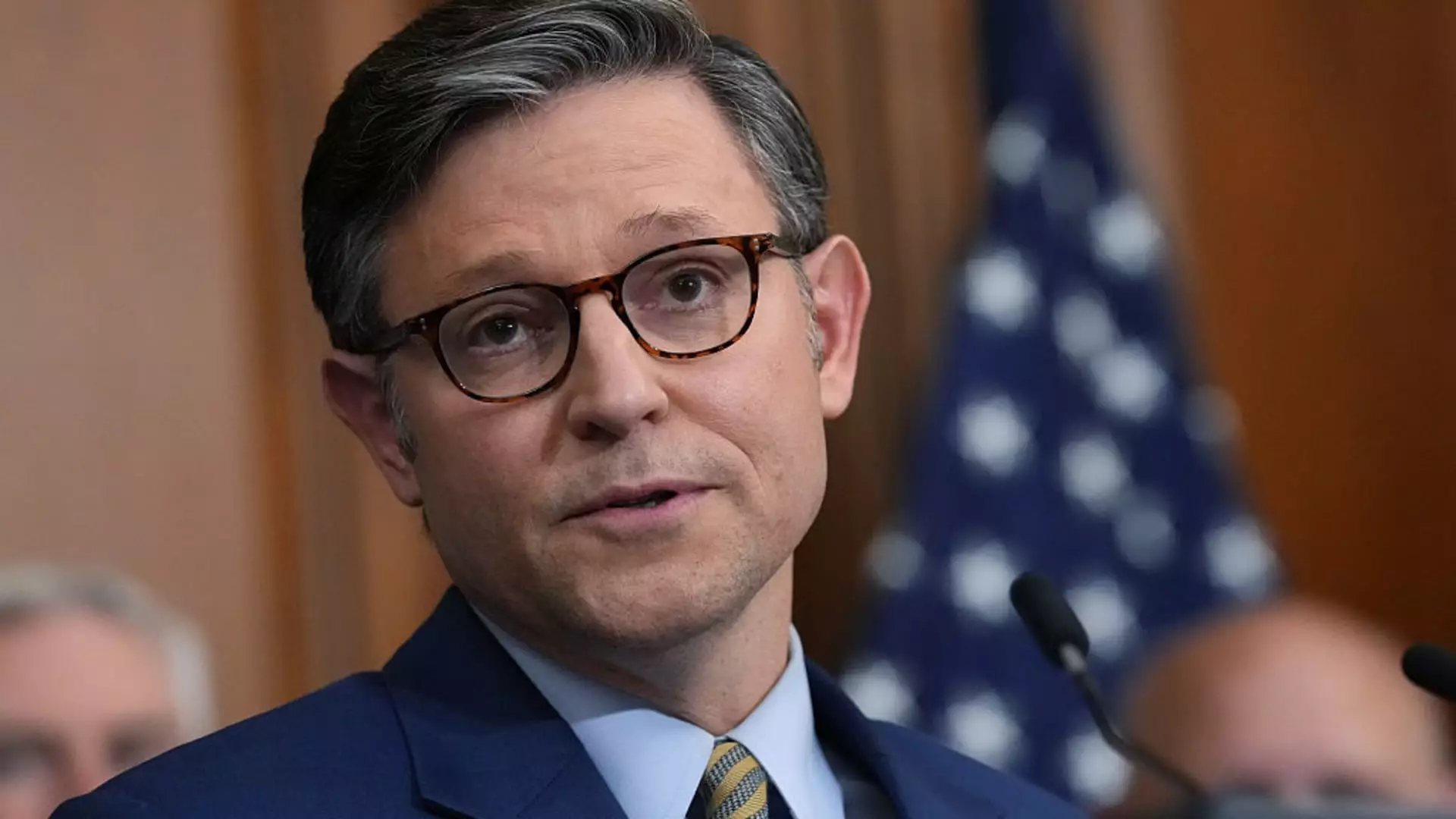The recent actions taken by Speaker Mike Johnson and the House Republicans regarding Medicaid illustrate a pattern of governance that prioritizes political ideology over the well-being of the American populace. The proposed reforms include stringent work requirements for able-bodied recipients, an initiative that, while framed as “common sense,” reveals an alarming disconnect from the lived realities of the people they will affect. At the core of this initiative lies a misguided belief that increased oversight and reduced accessibility will somehow yield a healthier, more self-sufficient citizenry. However, the façade of responsibility crumbles under the weight of its potential consequences.
Johnson’s assertion that “4.8 million people will not lose their Medicaid unless they choose to do so,” deserves scrutiny. The presumption that individuals will willingly opt out of an essential health care service highlights a fundamental misunderstanding of the struggles faced by many vulnerable Americans. For those navigating the intricacies of daily life while grappling with systemic barriers—be they economic insecurity, healthcare access, or employment challenges—this is not simply about choice; it is about survival. The rhetoric surrounding personal agency in this context belies the harsh reality that for many, the loss of Medicaid could equate to dire health implications, including increased morbidity and mortality.
The Illusion of Empowerment
The push for work requirements—defined as participation in job training or community service for 80 hours a month—exposes how superficial the current administration’s view is regarding “empowerment.” While proponents argue this approach fosters a sense of responsibility, it inadvertently stigmatizes those who rely on Medicaid. Furthermore, the expectation that individuals can seamlessly balance work, training, and the complexities of life while adhering to new bureaucratic hurdles is preposterous. In reality, the stringent paperwork and intensive eligibility checks will likely serve as a barrier rather than a bridge to self-sufficiency.
Critically, Johnson’s comments downplay the real difficulties associated with navigating such policies. The notion that simply requiring basic involvement or employment represents no significant inconvenience is not only dismissive but also dangerously misinformed. As observed by critics like Sen. Raphael Warnock, the proposal’s intricate reporting requirements are designed in such a way that they can easily displace individuals from their essential health care coverage—something Johnson and his allies conveniently overlook. It is evident that the legislation is less about encouraging productivity and more about reasserting control over a vulnerable population.
Political Backlash: A Reflection of Reality
The backlash faced by Republicans at town halls is not a mere political squabble; it is a loud and clear signal from constituents grappling with the implications of healthcare policy changes. Representatives like Mike Flood, Ashley Hinson, and even Senator Joni Ernst have been met with vocal dissent, revealing that support for this Medicaid overhaul is far from unanimous—even among their own ranks. In light of this discontent, the question must be posed: how can legislators align themselves with policies that alienate the very constituents they are meant to represent?
Moreover, the criticism from within Republican ranks, notably from figures like Sen. Josh Hawley, exposes the prevailing divide in the party’s ideology about how to properly address poverty and health care access. Hawley’s assertion that the effort to gut health insurance for the working poor is both “morally wrong and politically suicidal,” resonates with many who see health care as a fundamental human right rather than a bargaining chip in political gamesmanship.
Redefining Responsibility in Governance
As the Senate deliberates over this controversial legislation, the stakes are higher than ever. The call for “responsible governance” must not become synonymous with diminishing the rights and dignities of the marginalized. Instead of adopting a punitive approach, policymakers should focus on creating an inclusive system that both empowers individuals and ensures they have access to essential resources. Addressing economic instability does not necessitate stripping away health care; instead, it requires comprehensive solutions that lift people up, rather than tear them down.
Ultimately, the current trajectory of Medicaid reform begs for urgent re-evaluation. A commitment to genuine compassion and understanding is imperative as this bill inches closer to becoming law. The lives of millions depend on it, and an unwavering focus on pragmatic, humane solutions should take precedence over rigid political ideologies.

Leave a Reply